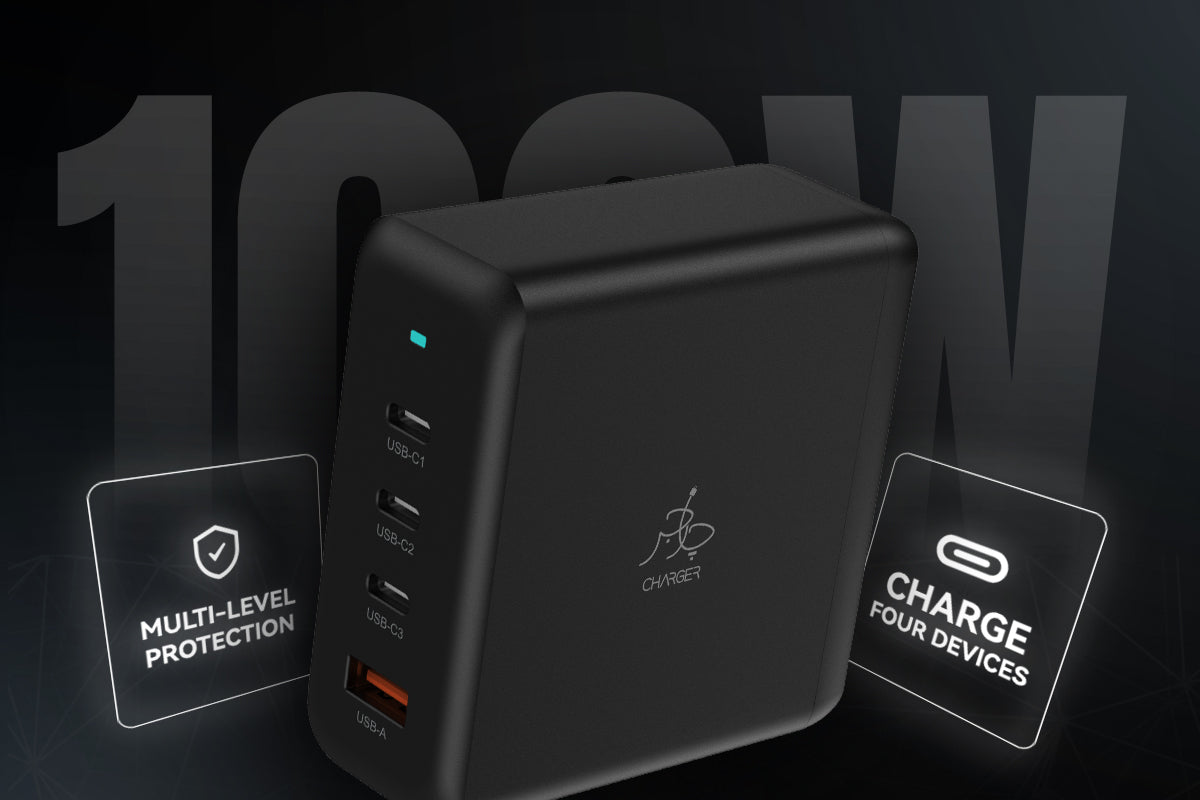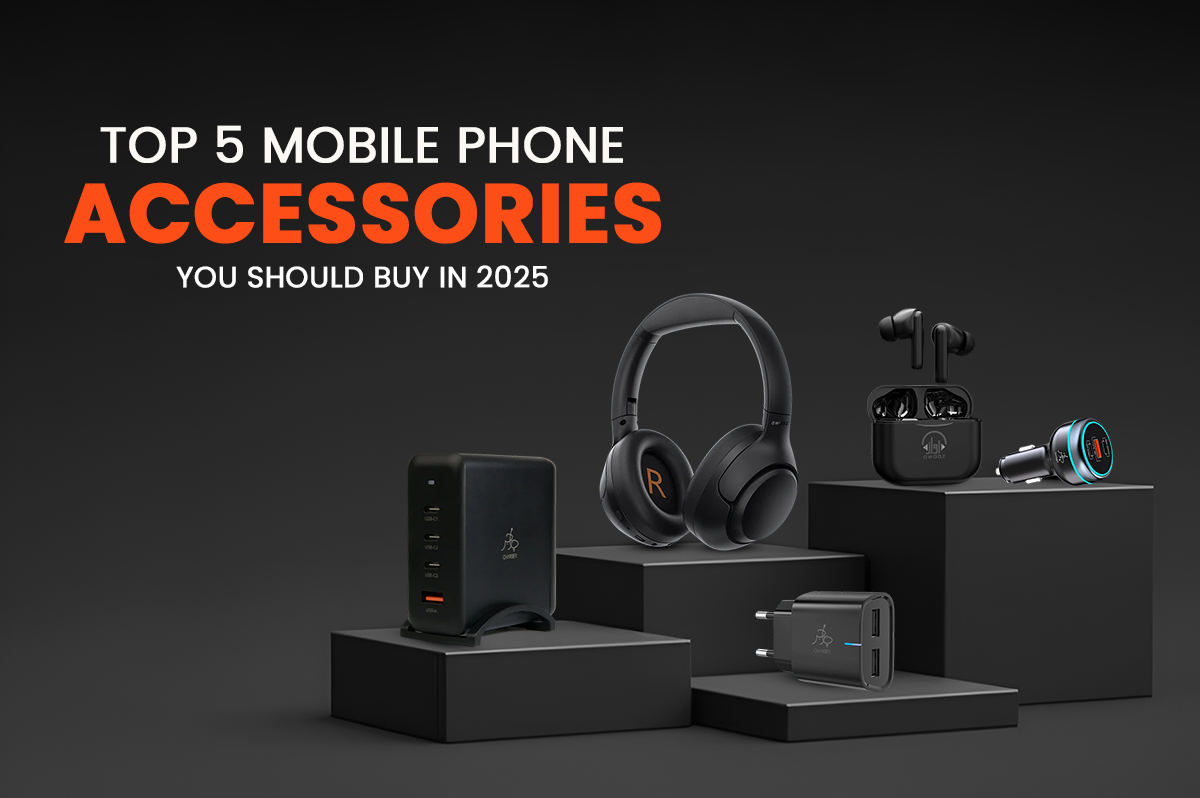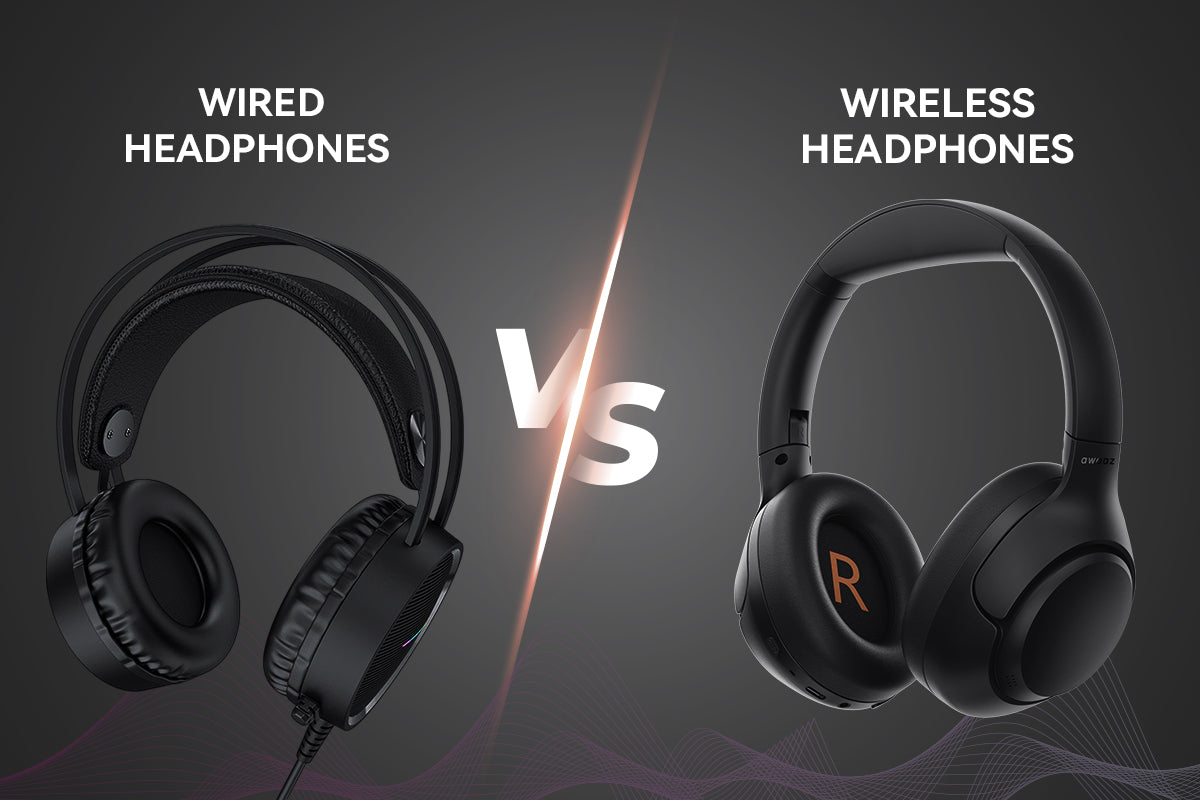Introduction
Fast charging has transformed how we power our devices, making it possible to go from nearly empty to a usable battery in minutes. As consumer demand for speed continues to rise, 100W chargers have emerged as a groundbreaking solution. These high-power adapters promise to fully charge laptops, smartphones, and tablets faster than ever before. But how practical are they, and what trade-offs should consumers know about? This blog explores the benefits and limitations of 100W chargers and what they mean for the future of mobile power.
What Is a 100W Charger?
A 100W charger is a high-capacity power adapter, typically using USB-C Power Delivery (PD) standards, that can deliver up to 100 watts of output. Unlike traditional 18W or 30W phone chargers, 100W adapters are powerful enough to support:
- Smartphones with fast charging support
- Tablets and iPads
- Ultrabooks and MacBooks
- Gaming laptops with USB-C compatibility
This makes them one of the most versatile charging solutions available today.
Benefits of 100W Fast Chargers
Ultra-Fast Charging Speeds
The most obvious benefit is speed. For smartphones supporting high-wattage input, charging from 0% to 50% can take as little as 15–20 minutes. Laptops that usually require bulky adapters can reach full charge in under two hours.
Universal Compatibility via USB-C
The shift toward USB-C PD has made 100W chargers highly versatile. Instead of carrying multiple bricks for different devices, one charger can power your laptop, phone, and tablet.
Portability and Convenience
Many 100W chargers are compact, making them travel-friendly. Some even feature GaN (Gallium Nitride) technology, which allows smaller sizes without compromising power.
Future-Proof Technology
As devices continue to demand more power, a 100W charger ensures you won’t need to upgrade frequently. It aligns with the growing trend of high-capacity batteries in smartphones and laptops.
Limitations of 100W Fast Chargers
Device Compatibility
Not all devices can take full advantage of 100W charging. Most smartphones cap their charging input around 65W or lower. Using a 100W charger won’t harm the device, but it may not deliver a noticeable speed boost compared to a 65W charger.
Battery Health Concerns
Consistent high-wattage charging may generate more heat, which can affect long-term battery health. Many manufacturers include smart charging protocols to reduce wear, but the risk of faster degradation remains a concern.
Cost Factor
100W chargers are more expensive than standard adapters. For users who don’t need to charge laptops, the added cost may not be justified.
Bulkier Than Lower-Wattage Options
Although GaN technology has reduced the size of high-capacity chargers, they are still larger and heavier than 20W or 30W options commonly used for phones.
The Future of Fast Charging
The push toward faster charging speeds is not slowing down. Brands are already experimenting with 100W and even 188W charging systems for smartphones. However, the industry is also focusing on safe charging standards, sustainable energy use, and battery longevity.
In countries like Pakistan, where access to power outlets can sometimes be limited, high-wattage chargers may play a vital role in ensuring devices remain powered throughout the day. With more laptops, tablets, and phones supporting USB-C PD, 100W chargers may soon become the universal standard for tech users.
Best Use Cases for 100W Chargers
- Professionals who travel frequently and want one charger for multiple devices
- Students using laptops and smartphones daily
- Gamers with power-hungry laptops
- Remote workers balancing tablets, phones, and laptops on the go
Conclusion
100W fast chargers represent a major leap forward in charging technology. They offer speed, versatility, and future-proof convenience, making them an excellent choice for tech enthusiasts and professionals. However, their benefits are best realized when paired with compatible devices. As the charging ecosystem evolves, these adapters are likely to become a standard accessory for powering everything from smartphones to gaming laptops.
For those exploring the latest in charging solutions, Connect with Taar is here to connect you with the future of fast, reliable power.
FAQs
Q1: Can a 100W charger damage my phone?
Ans: No. Devices only draw the power they need. If your phone supports a maximum of 30W, it will only pull that much, even if you use a 100W adapter.
Q2: Do all USB-C cables support 100W charging?
Ans: Not all. To achieve 100W speeds, you need a certified USB-C cable rated for 5A/20V.
Q3: Is a 100W charger safe for daily use?
Ans: Yes, as long as it’s certified and built with safety features such as overcurrent protection and temperature control.
Q4: Will 100W chargers replace traditional laptop bricks?
Ans: In many cases, yes. Many modern laptops are now designed to charge efficiently via USB-C, eliminating the need for bulky proprietary adapters.




Leave a comment
This site is protected by hCaptcha and the hCaptcha Privacy Policy and Terms of Service apply.